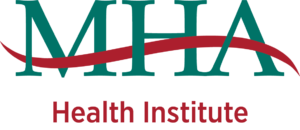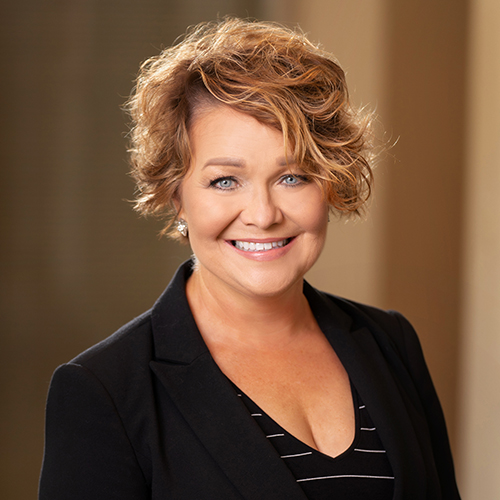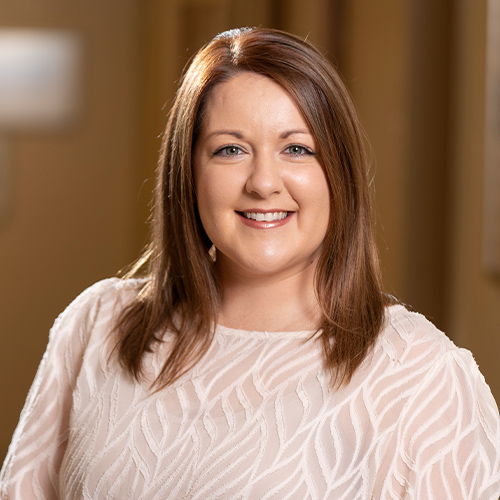Session 1 — March 8
Understanding Yourself as a Leader
Knowing yourself and understanding your colleagues is the key to building solid professional relationships. During this session, you will identify your basic communication, decision-making and leadership style using an individual personality profile assessment. Based on the results, you’ll gain a better understanding of your work style and how to build more effective relationships. With multiple generations in today’s workplace, you need to connect with a multigenerational workforce. Participants will learn effective tools for appreciating others’ perspectives, and understanding their behaviors and differing motivational factors. Successful people better understand themselves and others more effectively!
Objectives
-
- identify the strengths and limitations of behavior styles
- describe variations in how individuals communicate
- improve awareness of reasons for generational differences, thereby improving relationships
Session 2 — April 5
Culture of Excellence
Creating a culture in which people love to work is vital to the success of your team, department and hospital. When people love coming to work, it creates higher engagement and better outcomes. In this session, you will learn the framework to create an excellent culture and how to implement that framework. The goal is to leave with clarity around your game plan and the ability to work your game plan with your team for even better outcomes. Having clarity and alignment with your team will help produce stronger relationships and an even stronger overall team, department and hospital.
Objectives
-
- discuss creating team and individual clarity, alignment and purpose
- discuss building stronger relationships
- utilize focused activities and outcomes
- discuss when to say “no”
- explain continuous development and improvement
Session 3 — May
Time Management for Leaders
Participants will learn the key components of the most effective time management framework to regain an extremely valuable resource: time. Through practical application exercises, they will identify common challenges and synthesize strategies and tactics to improve both personal and team efficiency.
Objectives
-
- determine your priorities when “everything” is important
- understand how to get things done despite interruptions and being called on to “put out fires”
- develop a weekly plan, even with an ever-changing schedule
- create daily action lists that actually get done
- morph your calendar when fires (or great opportunities!) pop up
Session 4 — June 7
Conflict Dynamics and Communication
When interpersonal conflict comes knocking, leaders, managers and supervisors take various approaches to how they will handle the situation, if at all. Conflict-competent leaders know the importance and value of dealing with conflict constructively and productively. Therefore, our mindset about conflict drives our conflict management responses.
Do you recognize these typical leadership responses to conflict? For example, “They are adults; let them handle it,” or “We just need to work together and compromise.” “I’m not getting in the middle of that mess,” or “If they can’t figure it out, I will decide for them, and that will be that!”
A leader competent in managing and resolving conflict sees stressful situations as an opportunity to respond timely and effectively while modeling effective behaviors.
Objectives
-
- identify conflict beliefs and shift the mindset
- describe signs and symptoms of potential workplace conflict
- recognize the costs of habitual conflict avoidance
- describe personal hot buttons and list strategies to cool them
- practice constructive behaviors to manage conflict productively
Session 5 — July 17
Mental Health in the Workplace
Recent studies have highlighted that workplace stress and burnout are at an all-time high. This especially is true in the health care industry. Learn how stress affects our health, and discover the evidence-based strategies to complete the stress cycle and release this toxic stress from our bodies.
Objectives
-
- learn how to identify people who are impacted by childhood trauma
- learn how the brain and body respond to trauma and how that affects behavior
- leave with a ‘Call to Action’ and be equipped with specific tools to support people impacted by trauma
- discover how stress gets stored in the body
- identify evidence-based practices that complete the stress cycle
- make an individualized stress management plan
Session 6 — August 16
Achieving Results Through Others
Leaders will learn how to diagnose the development level of employees and prescribe the correct leadership styles. This allows leaders to provide the exact direction and motivation needed. This program focuses on instilling in others a desire to want to perform. Several other concepts will be taught that will help the leader identify and act on positive behaviors.
Objectives
-
- describe the characteristics of leaders
- identify and act on positive and negative behaviors
- discuss how to provide feedback and resolve conflict
- set SMART goals
- coach team members to success
- motivate self and others
Session 7 — September 13
Leadership Panel
MHA-member hospital executives from a variety of leadership levels are invited to participate in a live Leadership Panel. HCLS attendees may ask questions, solicit advice and engage in discussion on leadership issues with seasoned administrative and clinical leaders.
Project Management for Health Care Leaders
Today’s health care leaders often find themselves managing a plethora of projects with multiple deliverables and dependencies, combined with competing timelines, resources and staff. Due to the cross-functional nature of patient care, the need for project management is becoming increasingly apparent. This session will provide the fundamentals of project management principles and methodologies to support effective project planning and budgeting. Monitoring the project by establishing key performance indicators, assuring quality and managing changes will be addressed. Effective communication strategies will be explored to encompass both the project team and broader organization. Case studies and real-world examples will be used to apply the concepts learned. Attendees will leave this session with the essential tools, techniques and insights to successfully plan, execute and control projects.
Session 8 — October 11
Health Care Environment and Resources
The Missouri Hospital Association offers numerous resources and services to its member hospitals. During this final session, MHA staff will provide an overview of the current health care environment for Missouri’s hospitals. Advocacy, regulatory and legal issues that directly affect your job and your hospital community will be shared, as well as information on health policy and population health.
Objectives
-
- understand the resources available through MHA
- describe how to become more involved in shaping health care in Missouri
When Everyone Leads: How the Toughest Challenges Get Seen and Solved
To conclude the Health Care Leadership Series, this session will focus on helping participants articulate a range of aspirations and concerns as they think about the future of health care in Missouri.
Leadership is not about authority and position. Rather, leadership is an activity — small actions taken in moments of opportunity. That means everyone can lead. You can lead no matter where you sit in your company or community. And, when more people feel empowered to see, and seize our moments to lead, we make more progress on our most important challenges.
When Everyone Leads is a new book from Bard Press and the Kansas Leadership Center. It’s a resource that helps tap your power and unleash capacity among your peers and teams. Join the conversation and discover new ways to move forward on what matters most.
Objectives
-
- recognize leadership in the gap between big concerns and bold aspirations
- identify common barriers to leadership and how to get around them
- realize that leadership begins with you
- learn how to make leadership less risky for others
- discover how to build cultures where everyone leads
A ceremony celebrating the completion of the Health Care Leadership Series will conclude the session.















